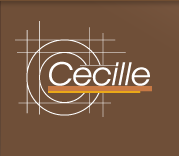Sciences Po Lille is renowned for its desirable 5 year program towards a Masters degree, the quality of its teaching and for the professional success of its students. It also has the scientific influence of its researcher professors, whose job it is to combine the transmission of knowledge and knowledge production.
With its interdisciplinary culture, Sciences Po Lille aims to initiate and increase the unifying scientific operations, particularly in collaboration with different laboratories which are members of its faculty: CECILLE, CERAPS, CLERSE, CRDP, IRHIS. Four of these members are CNRS units.
Sciences Po Lille considers research to be a very valuable instrument to the openness of the city and its societal environment. Various activities are regularly carried out in order for its students to meet and talk to researchers and professionals from diverse business sectors for the particular degrees Sciences Po Lille has to offer (this includes journalists, professionals in cultural and world associations, experts involved in international associations, etc.)
With more than 30 professional-researchers belonging to various disciplines of social sciences, Science Po Lille invests in research to ensure that it is a source and a major resource for being recognized as a quality institution. Research irrigates all its teachings, it broadcasts cultural and scientific ethics to all its students, it builds bridges between people and continents. Research is our business it is also a link to the outside world.
Research laboratories
Centre for Civilization Studies, Foreign Languages and Literatures (CECILLE), EA 4074.

Centre for Political and Social Administration Studies, Centre d’Etudes et de Recherches Administratives Politiques et Sociales (CERAPS), UMR 8026.
The French National Centre for Scientific Research (French: Centre national de la recherche scientifique, CNRS) is the largest governmental research organization in France [1] and the largest fundamental science agency in Europe. [2] It employs 32,000 permanent employees (researchers, engineers, and administrative staff) and 6,000 temporary workers.[3]

Lille Centre for Sociological and Economical Research, Centre Lillois d’Etudes et de Recherches Sociologiques et Economiques (CLERSE), UMR 8019.
An important feature of the Clersé is its combination economists and sociologists as well as some anthropologists and demographers in the same institution in order to foster multidisciplinary research approaches.

Research Centre for Law and Rights Prospects, Recherches Droits et Perspectives du Droit (CRDP), EA 4487.
CRDP is a research center focusing on Law

Institute of Northern Historical Research, Institute de Recherches Historiques du Arctique (IRHIS).
IRHIS aims to bring a scientific research of the highest level, by structuring strong teams on themes of art history, economics and social history, by declining the study scales, from local to international. It plays a leading role in building emerging interdisciplinary themes: Visual Culture / Visual Studies, memorial and heritage studies, War and conflict studies.



